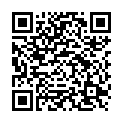|
|
|
| Module code: BAME18-13 |
|
|
4S (4 hours per week) |
|
6 |
| Semester: 4 |
| Mandatory course: yes |
Language of instruction:
German |
Assessment:
Exam achievement: Written term papers
[updated 01.10.2020]
|
BAME18-13 (P311-0053, P311-0054) Health care management, Bachelor, ASPO 01.10.2018
, semester 4, mandatory course
|
60 class hours (= 45 clock hours) over a 15-week period.
The total student study time is 180 hours (equivalent to 6 ECTS credits).
There are therefore 135 hours available for class preparation and follow-up work and exam preparation.
|
Recommended prerequisites (modules):
BAME18-05 Academic Methodologies and Study Skills I
BAME18-07 Methodologies I
[updated 17.08.2017]
|
Recommended as prerequisite for:
|
Module coordinator:
Prof. Dr. Iris Burkholder |
Lecturer:
Prof. Dr. Iris Burkholder
Prof. Dr. Johannes Gräske
Dr. Sindy Lautenschläger
[updated 17.08.2017]
|
Learning outcomes:
Quantitative Methods Tutorial:
After successfully completing this module, students will be able to apply and have deepened the statistical-methodological knowledge they acquired in the modules BAME 05 and 07. Building on the knowledge gained in the course BAME 07.1 (Quantitative Methods), they will have comprehensive skills in data collection, input, testing and analysis. They will be able to use SPSS as a data management software and analysis program. They will learn to use SPSS by solving concrete problems and using sample data sets.
Qualitative Methods Tutorial:
After successfully completing this module, students will be able to formulate qualitative research questions, implement qualitative methods (e.g. interview or observation) as well as analyze the collected data and will thus have expand their methodological knowledge from the BAME 07.2 (Qualitative Methods) module. They will have deepened their knowledge of analysis techniques such as e.g. qualitative content analysis, grounded theory or objective hermeneutics.
[updated 01.10.2020]
|
Module content:
Quantitative Methods Tutorial:
1. Data entry/plausibility check
2. Descriptive statistics
3. Inductive statistics
4. Consolidation and use of the statistical analysis software SPSS
Qualitative Methods Tutorial:
1. 1.Formulating research questions
2. Creating an interview guide or observation sheet
3. Conducting an interview or observation
4. Exemplary data analysis of a case using a selected analysis technique
Print and electronic media, exercises on the PC
[updated 01.10.2020]
|
Recommended or required reading:
Quantitative Methods:
_ Brosius F (2014). SPSS 22 für Dummies. Weinheim: Wiley
_ Döring N, Bortz J (2016). Forschungsmethoden und Evaluation in den Sozial- und Humanwissenschaften. 5. Auflage Berlin, Heidelberg: Springer.
_ Donk C, Lanen B, Wright MT (2014). Praxisforschung im Sozial- und Gesundheitswesen. Bern: Hans Huber.
_ Janssen J, Laatz W (2013). Statistische Datenanalyse mit SPSS. 8. Aufl. Berlin, Heidelberg: Springer Gabler
_ Kukartz U, Rädiker S, Ebert T, Schehl J (2013). Statistik. Eine verständliche Einführung. Wiesbaden: Springer VS
_ Müller M (2011). Statistik für die Pflege. Handbuch für Pflegeforschung und -wissenschaft. Bern: Huber
_ Rasch B, Friese M, Hofmann W, Naumann E (2014). Quantitative Methoden 1. Einführung in die Statistik für Psychologen und Sozialwissenschaftler. Heidelberg: Springer
Current versions of the manuals from the Regional Computer Center for Lower Saxony (Regionalen Rechenzentrums für Niedersachsen - RRZN)
Qualitative Methods:
_ Corbin J, Strauss A (2015). Basics of Qualitative Research: Techniques and Procedures for Developing Grounded Theory. 4th ed. Thousand Oaks: SAGE
_ Corti L, Van den Eynden V, Bishop L (2014). Managing and sharing research data: A guide to good practice. London: SAGE
_ Dresing T, Pehl T (2013). Praxisbuch Transkription: Regelsysteme, Software und praktische Anleitungen für qualitative ForscherInnen. 5. Aufl. Marburg: Eigenverlag. http://www.audiotranskription.de/download/praxisbuch_transkription.pdf?q=Praxisbuch-Transkription.pdf (Stand:13.10.2015)
_ Helfferich C (2011). Die Qualität qualitativer Daten: Manual für die Durchführung qualitativer Interviews. 4. Aufl. Wiesbaden: VS Verlag für Sozialwissenschaften
_ Kuckartz U (2012). Qualitative Inhaltsanalyse: Methoden, Praxis, Computerunterstützung. Weinheim, Basel: Beltz Juventa
_ Mayring P (2015). Qualitative Inhaltsanalyse. Grundlagen und Techniken. 12. überarb. Aufl. Weinheim, Basel: Beltz
_ Silverman D (2015). Interpreting Qualitative Data. 5th ed. Los Angeles, Calif.: SAGE
Additional literature will be announced in the course.
[updated 01.10.2020]
|


